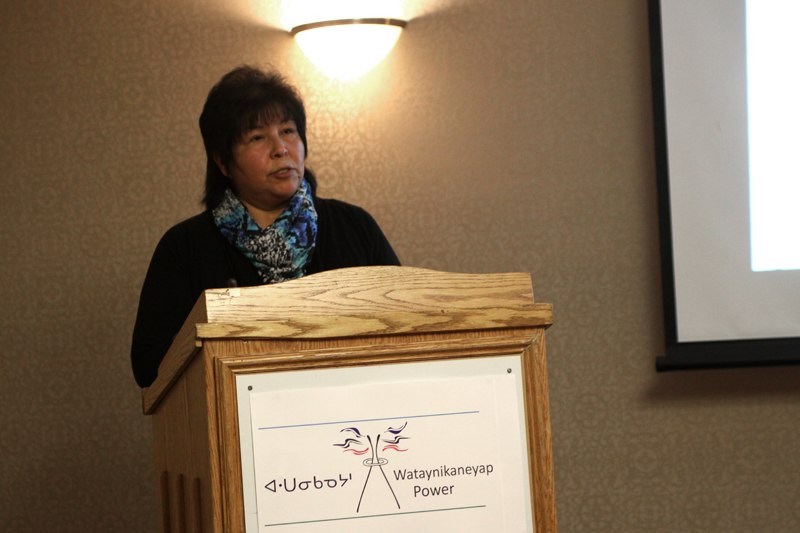More communities have signed on to a plan to get a transmission lines to the North.
Keewaytinook Okimakanak First Nations Council, which represents five Northern communities, has joined 13 others in Wataynikaneyap Power. The groups is looking to have 100 per cent First Nations-owned power lines that will get those communities off of diesel they now rely on, which they say is expensive and stunting growth in the North.
"Not only that, we also look at future economic opportunities and business opportunities," Wataynikaneyap chair Margaret Kenequanash said Tuesday after the agreement was singed.
Keewaytinook Okimakanak executive director Peter Campbell said the $1 billion project would stretch more than 1,200 kilometres. He added that his communities see the plan as something sustainable rather than dealing with the challenges of diesel generators.
"Spills, cleanups, environmental stuff those are the big challenges," he said.
Relying on winter roads is also a challenge. If the road doesn't' last long enough for communities to get up to one million liters of fuel, the rest of it needs to be flown in.
"That's where it becomes astronomical," Campbell said of the cost.
And even when that fuel does get to a community, Kenequanash said capacity becomes an issue. Sometimes people need to power swap, turning off power in one home in order to power another.
Construction on the first phase of the project, which would provide upgrades to the line to Pickle Lake, could start next summer.
"Yes people are saying that we're absolutely crazy having such a short timeline but I think given the nature of the need we're working toward that goal," Kenequanash said.
The company is partnering with Goldcorp in order to get the project off the ground.
Kenequanash said they're currently looking for a transmission partner, which she hopes will be found within six months.
